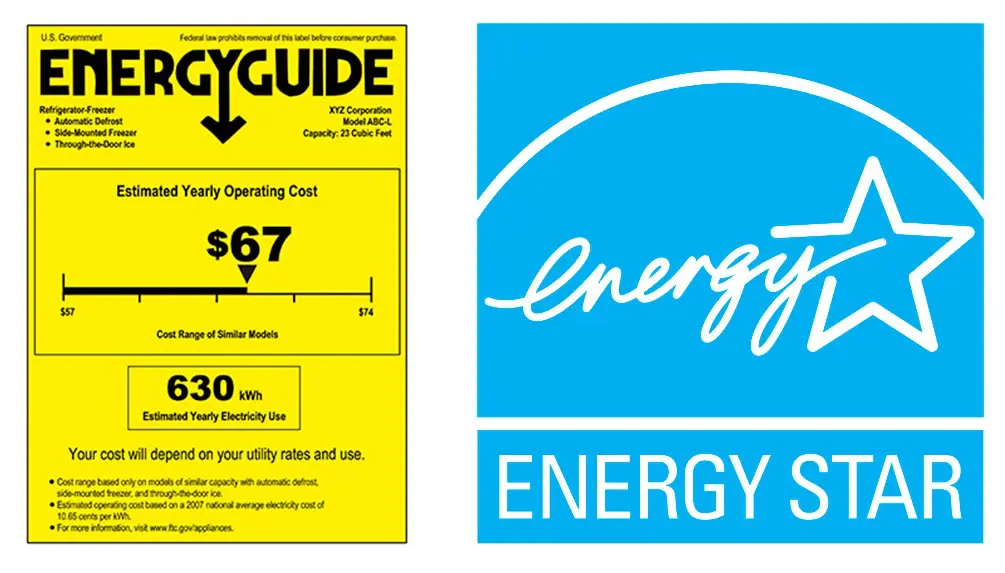 207-885-0771
207-885-0771When you’re shopping for a new heating or air conditioning unit or chatting with an HVAC contractor, the lingo can get confusing. We know there are A LOT of acronyms for everything, especially when it comes to energy ratings – SEER, AFUE, HSPF, ENERGY STAR. What the heck does it all mean?!
We thought it would be helpful to break down all these abbreviations. Here’s our explanation for what they all stand for, and how the numbers associated with the ratings really impact the efficiency, comfort and cost of heating and cooling your home.
There is no reason not to invest in the most energy efficient system you can get. You will use this equipment for 15 to 20 years, so investing in the highest energy efficiency you can save you considerable money in the long run. Make sure the company you are speaking with thoroughly explains the energy efficiency ratings of the units you are considering and how they differ between brands, sizes, and types. The energy efficiency factor is a very important part of choosing a new HVAC system.
For air conditioning units, we look at the SEER rating of the unit. SEER is a measure of energy versus output. The higher the SEER rating, the better the energy efficiency of the unit. It’s important to note that the SEER rating is a maximum value, like the MPG rating for a vehicle. It refers to how efficient the unit will be under ideal conditions throughout the season. Of course, when is weather in Maine ideal?!
For heating systems, we look at the AFUE rating. The higher the AFUE rating, the more heat energy is produced and the less energy lost. This means you’ll spend less on fuel over time with a higher AFUE rating. The higher the better, and we recommend at least an 80 AFUE. This translates to 80 percent of the fuel used heats your home, while only 20 percent is lost out the flue. According to Energy.gov, a high-efficiency heating system has an AFUE rating of 90% to 98.5%. A mid-efficiency heating system has an AFUE rating of 80% to 83%, and any AFUE rating lower than that is considered a low-efficiency heating system.
When comparing heating systems that use the same fuel, the AFUE can help you choose the more energy efficient and cost-effective option.While AFUE is very important, the major contributor to the cost of running one heating system versus another is the cost of the fuel used for each system.
Heat pumps are rated slightly differently. For heat pumps, we look at the HSPF rating. Because heat pumps offer heating and cooling, moving heat from a colder space to a warmer space, they have a different efficiency factor to consider. Heat pump ratings go from 7 up 13. The higher the HSPF rating, the more efficient the heat pump is and will reduce your energy costs accordingly. A heat pump should have a minimum HSPF rating of 8.2 to be considered energy efficient.

ENERGY STAR® is the government-backed symbol for energy efficiency. It was introduced as a volunteer labeling program to identify and promote energy efficient products, and has become a standard for consumer efficiency notification. ENERGY STAR® products, identified by their light blue label, use less energy and therefore help you save money on energy bills. Their labels shows that the product has been verified to save more energy than traditional models. Verification is handled by the United States Environmental Protection Agency (EPA) through independent testing labs. ENERGY STAR® products do save energy, which consequently saves money and helps the environment.
Everyone wants to be more energy efficient. After all, it saves money! The perception is that high efficiency equipment costs a lot more though, so who can afford it? Efficient HVAC systems are very common these days, so they are no longer as cost prohibited as they used to be. Considering how much you can save in fuel costs over the 15 – 20 year lifespan of most equipment, it’s well worth it to buy as efficient as system as you can afford. Also consider thinking outside the proverbial HVAC box and consider how much you might enjoy the comfort, and save a lot of energy costs, with a heat pump or radiant heating system if you are buying new.